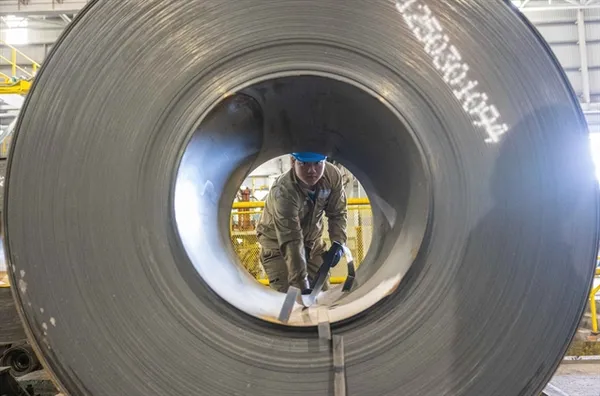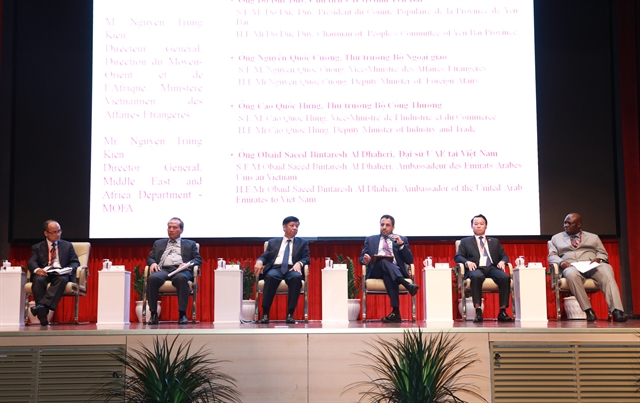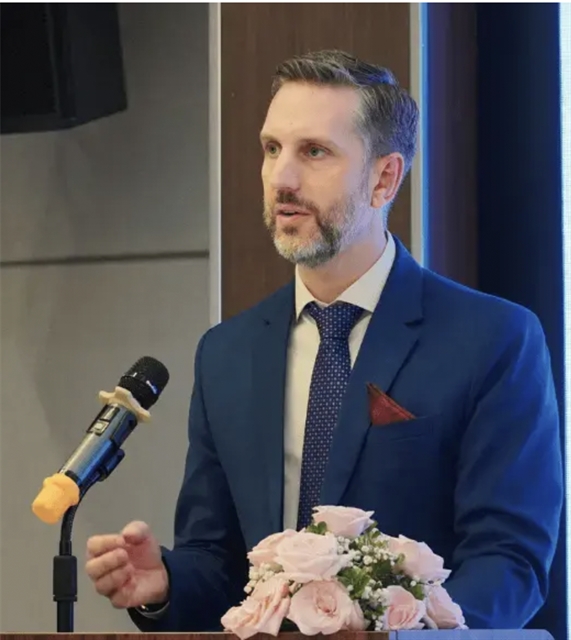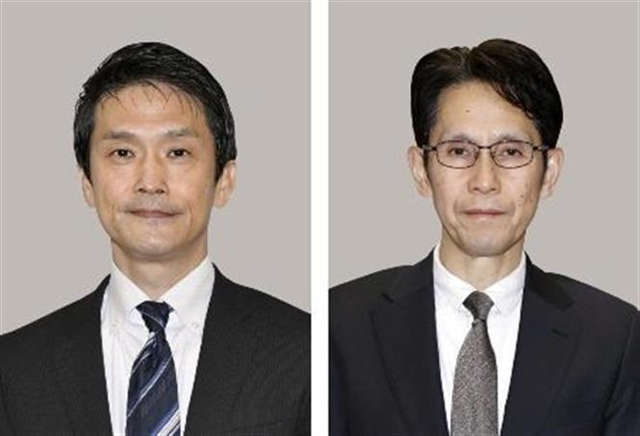 Economy
Economy

Việt Nam and African countries should use more group exchanges to help both sides’ enterprises improve their understanding of each other, officials said yesterday.

|
| Panelists at a discussion on Monday about enhancing the effectiveness of trade co-operation between Việt Nam and the Middle East and Africa. — VNS Photo Trương Vị |
HÀ NỘI — Việt Nam and African countries should use more group exchanges to help both sides’ enterprises improve their understanding of each other, officials said yesterday.
Economic relations between Việt Nam and African countries have been growing in recent years. However, Vietnamese firms have been struggling with the conflicting payment systems.
Not only small firms, even big players like the the Viettel Military Industry and Telecoms Group (Viettel) and the the Hà Nội Trade Corporation (Hapro) have struggled in selling products and services in Africa.
According to Phan Thị Thanh Nhàn, Direct of Trade Finance Centre at the Joint Stock Commercial Bank for Investment and Development of Vietnam (BIDV), international trade payment depends on firms’ routines, understanding and prestige.
There are three major means of payment: telegraphic transfer, collection and letter of credit. The first two can be too risky for sellers because buyers can can easily disappear and sellers are weighed down by losses and risks. With the first two methods, banks can only be a middleman.
With a letter of credit, the bank must pay the price of the goods to the seller. But before that, the buyer must obtain a letter of credit (L/C) from the bank and the seller gets his money once all invoices are delivered to the bank.
In the Middle East, banks and companies are highly transparent in trading with overseas partners, Nhàn said.
“Their quality standards are also strict, especially when they have a Halal certificate for imported food products. Vietnamese companies must meet all requirements from Middle East firms and submit the accurate papers provided by a third-party company.”
Nhàn said in Africa, local firms are often financially weak and are unwilling to accept a L/C deal. Instead, they prefer cash-on-deliver payment and sometime pay late, posing risks for Vietnamese exporters.
“But even a L/C payment would not be accepted easily,” she said, adding Vietnamese firms often seek partners on the internet, whose information is not publicly known.
“Those companies may not really exist. Even if they exist, it is very difficult to contact them.”
In addition, the African banking system is slow with low ratings, while travel distance between Việt Nam and Africa often makes it hard for firms to get to know their partners, she added.
According to Akua Sekyiwa Ahenkora, High Commissioner of Ghana to Vietnam resident in Malaysia, the African banking system is not different from the world as each country has its own central bank to manage the financial and monetary systems.
African countries do a lot of business with the world, so the Vietnamese side cannot use excuses of travel distance and transparency when doing business in Africa, she said.
The world is connected by the internet, so travel distance should not be the main problem, she said, adding the main issue is trust. She asked Vietnamese firms to send reports to African central banks so all cases are handled properly.
According to deputy governor of the State Bank of Vietnam Đào Minh Tú and vice chairman of the Vietnam Chamber of Commerce and Industry Hoàng Quang Phòng, there are differences between Việt Nam and African countries in culture, habit and policies.
The lack of communication between the two sides’ officials is another cause for the problems, even when Vietnamese banks and companies are willing to set up branches in Africa, the two officials said.
Deputy minister of Foreign Affairs Nguyễn Quốc Cường urged two sides to increase exchanges and communications so government agencies and companies can understand each other better.
The role of ambassadors and representative offices is essential to help Vietnamese firm expand business to Africa and vice versa, he said. — VNS




